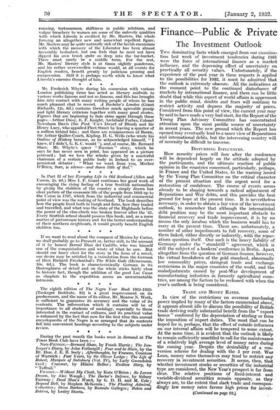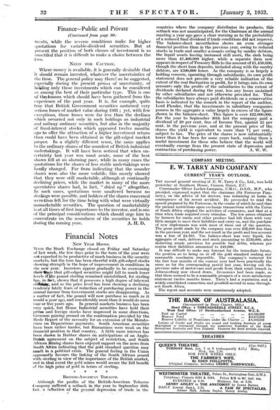TRADE AND MONEY RATES.
In view of the restrictions on overseas purchasing power implied by many of the factors enumerated above, it appears almost idle to discuss the possibility of British trade deriving really substantial benefit from the " export bonus " conferred by the depreciation of sterling or from the imposition of import duties. The most that can be hoped for is, perhaps, that the effect of outside influences on our internal affairs will be tempered to some extent. At the same time, it is evident that the outlook is likely to remain sufficiently unsettled to call for the maintenance of a relatively high average level of money rates during the coming year. Despite the desirability of a con- version scheme for dealing with the 5 per cent. War Loan, money rates themselves may tend to restrict any recovery in investment securities. It seems, then, that whether investment stocks or securities of the industrial type are considered, the New Year's prospect is far from clear. The relative positions of fixed-interest and variable-dividend securities remain opposite, as they always are, to the extent that slack trade and correspon- dingly low money rates favour high prices for invest-
(Continued on page 32.)
Finance—Public and Private (Continued from page 30.'
silents, while the reverse conditions make for higher quotations for variable-dividend securities. But at present the position of both classes of investment is so unsettled that it is difficult to make a choice between the two.







































 Previous page
Previous page